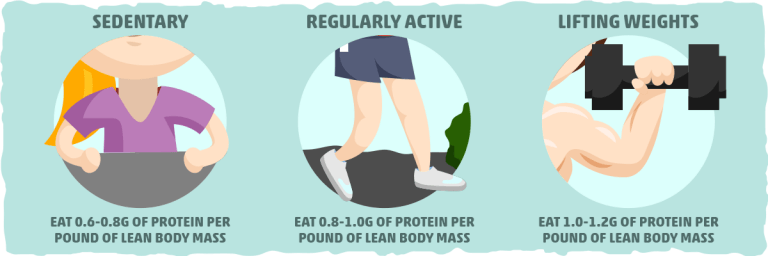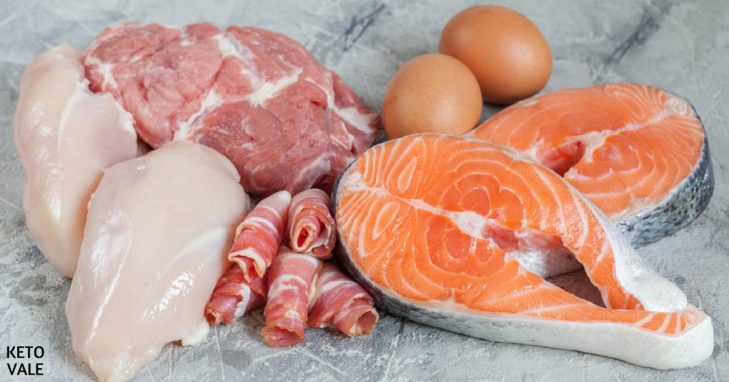how much protein should i eat in keto How much protein should i eat for keto
Protein and the Keto Diet: Finding the Right Balance The ketogenic diet is becoming increasingly popular for weight loss, improved energy levels, and other benefits. However, many people struggle to balance their protein intake while following a ketogenic diet. In this post, we’ll discuss how much protein you should aim to consume on the keto diet and what happens if you eat too much protein. What is the Ketogenic Diet? The ketogenic diet is a high-fat, moderate-protein, and low-carb diet that aims to shift your metabolism into a state of ketosis. When you follow a ketogenic diet, your body burns fat for fuel instead of glucose. This can help you lose weight and improve your overall health. How Much Protein Should You Eat on the Keto Diet? When it comes to protein consumption on the ketogenic diet, the recommended amount varies depending on your goals, activity level, and body composition. In general, it’s recommended to consume between 0.6 and 1.0 grams of protein per pound of body weight. This means that if you weigh 150 pounds, you should aim to consume between 90 and 150 grams of protein per day. Eating Too Much Protein on the Keto Diet While protein is an essential macronutrient that’s necessary for maintaining healthy muscles, bones, and other tissues, consuming too much protein on the keto diet can actually be detrimental to your health. When you consume more protein than your body needs, your liver converts it into glucose through a process called gluconeogenesis. This can kick you out of ketosis and make it more difficult to lose weight. Additionally, consuming too much protein can increase your insulin levels, which can also impair your ability to lose weight and maintain consistent energy levels. It’s important to find the right balance of protein on the keto diet to reap its benefits. Finding the Right Balance of Protein on the Keto Diet The key to finding the right balance of protein on the keto diet is to track your macronutrient intake and adjust according to your goals and needs. You can use a food tracking app or consult with a registered dietician to ensure that you’re consuming the right amount of protein and other nutrients. Additionally, choosing high-quality sources of protein is critical when following a ketogenic diet. Aim to consume grass-fed, organic meats and dairy products, as these are typically higher in nutrients and free from antibiotics and hormones. In conclusion, finding the right balance of protein on the ketogenic diet is critical for achieving your weight loss and health goals. By keeping your protein intake within the recommended range and choosing high-quality sources of protein, you can optimize your results on the keto diet.
If you are looking for Protein and Ketosis: Is Too Much Protein Bad For Ketosis? you’ve came to the right web. We have 5 Pics about Protein and Ketosis: Is Too Much Protein Bad For Ketosis? like How Much Protein Should I Eat For Keto - WHMUC, How Much Protein Should You Eat To Stay in Ketosis and also How Much Protein Should You Eat To Stay in Ketosis. Read more:
Protein And Ketosis: Is Too Much Protein Bad For Ketosis?
 www.ruled.meketo
www.ruled.meketo
How Much Protein Should You Eat To Stay In Ketosis
 www.ketovale.comHow Much Protein Should I Eat For Keto - WHMUC
www.ketovale.comHow Much Protein Should I Eat For Keto - WHMUC
 whmuc.blogspot.compound determined bodyweight kilogram
whmuc.blogspot.compound determined bodyweight kilogram
How Much Protein Should I Eat To Lose Weight On Keto - WHMUC
 whmuc.blogspot.comketo ketogenic ketosis
whmuc.blogspot.comketo ketogenic ketosis
How Much Protein Should I Eat For Keto - WHMUC
 whmuc.blogspot.comfennel carb ketosis
whmuc.blogspot.comfennel carb ketosis
Fennel carb ketosis. How much protein should you eat to stay in ketosis. How much protein should i eat for keto